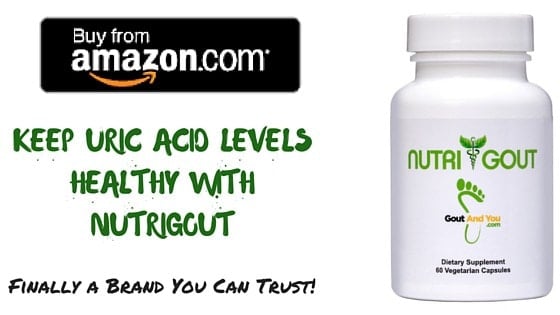What Role Does Magnesium Play In a Gout Diet?
Magnesium is an alkaline mineral that is found in many foods like leafy green veggies like romaine, lettuce, spinach, nuts and whole grains. Magnesium performs many functions in your body, helping control the amount of calcium in your body to muscle functions as well as your heart and kidneys. But where it concerns us gout sufferers, did you know that magnesium helps to circulate your blood better?
Magnesium will lower your blood pressure making your heart work more efficiently reducing any excess strain on it. The more your blood flows smoothly in your body, the more excess uric acid your body can remove avoiding any crystallization in the joints which can cause a gout attack. Actually magnesium has been shown and may be an effective treatment for acute cases of gout.
If you have signs of magnesium deficiency, you may be susceptible to developing gout. Many people are magnesium deficient and don’t even know it. There are few key symptoms to look out for that could indicate this like experiencing leg cramps on a regular basis, insomnia due to anxiety, restlessness and hyperactivity. You can also experience muscle pain and/or fibromyalgia which magnesium has shown to help decrease its’ symptoms. In addition, fatigue, anxiety, type 2 diabetes, migraines and high blood pressure can also be indicative that you are magnesium deficient.
So if you are magnesium deficient then you definitely want to add magnesium-rich foods in your diet or take magnesium supplements to compensate. Make sure to talk to your doctor before embarking on consuming magnesium supplements though. They can produce minor side effects that usually go away after a few days like diarrhea.
Some other more serious complications can occur if you take more magnesium than your doctor recommends. Your blood pressure may suddenly drop too low, you may experience bradycardia, a condition in which your heartbeats slow down to fewer than 60 beats per minute. Too much magnesium can, in extreme cases cause you to fall into a coma or even to die!
Did you know that it is estimated that about 80% of adults may lack enough magnesium in their body? This is due to soil depletion that lowers the amount of magnesium that is present in crops. Another factor is the high rate of prescription medication and antibiotic use that damages our digestive tract to the point that it cannot be properly absorbed. There are also digestive disorders in the gut, that lead to malabsorption of magnesium and other minerals.
How Much Magnesium Should You Have?
These are the current Recommended Dietary Allowances for magnesium depending on your age and gender according to the National Institutes of Health:
- 14–18 years: 410 mg for men; 360 mg for women
- 19–30 years: 400 mg for men; 310 mg for women
- Adults 31 years and older: 420 mg for men; 320 mg for women
- Pregnant women: 350-360 mg
- Women who are breastfeeding: 310-320 mg

